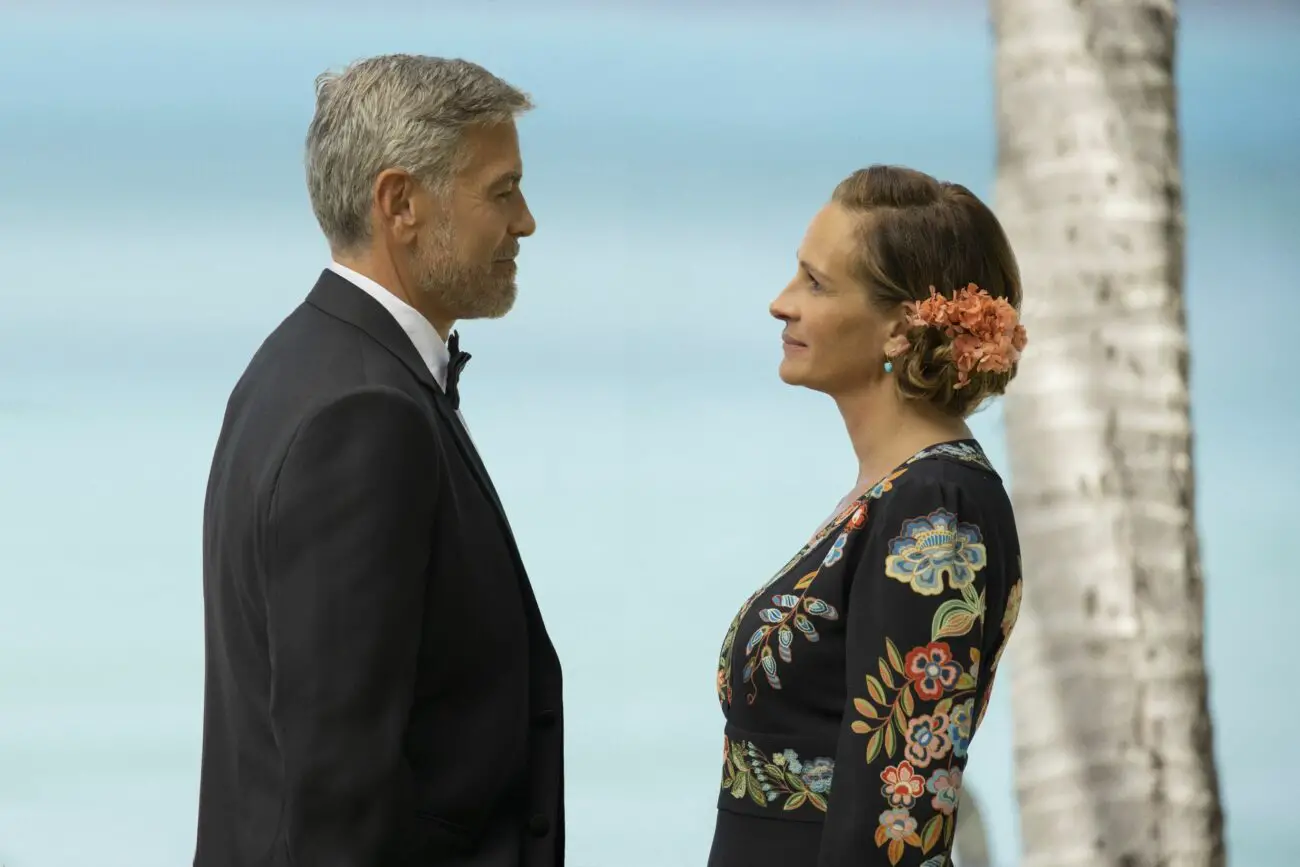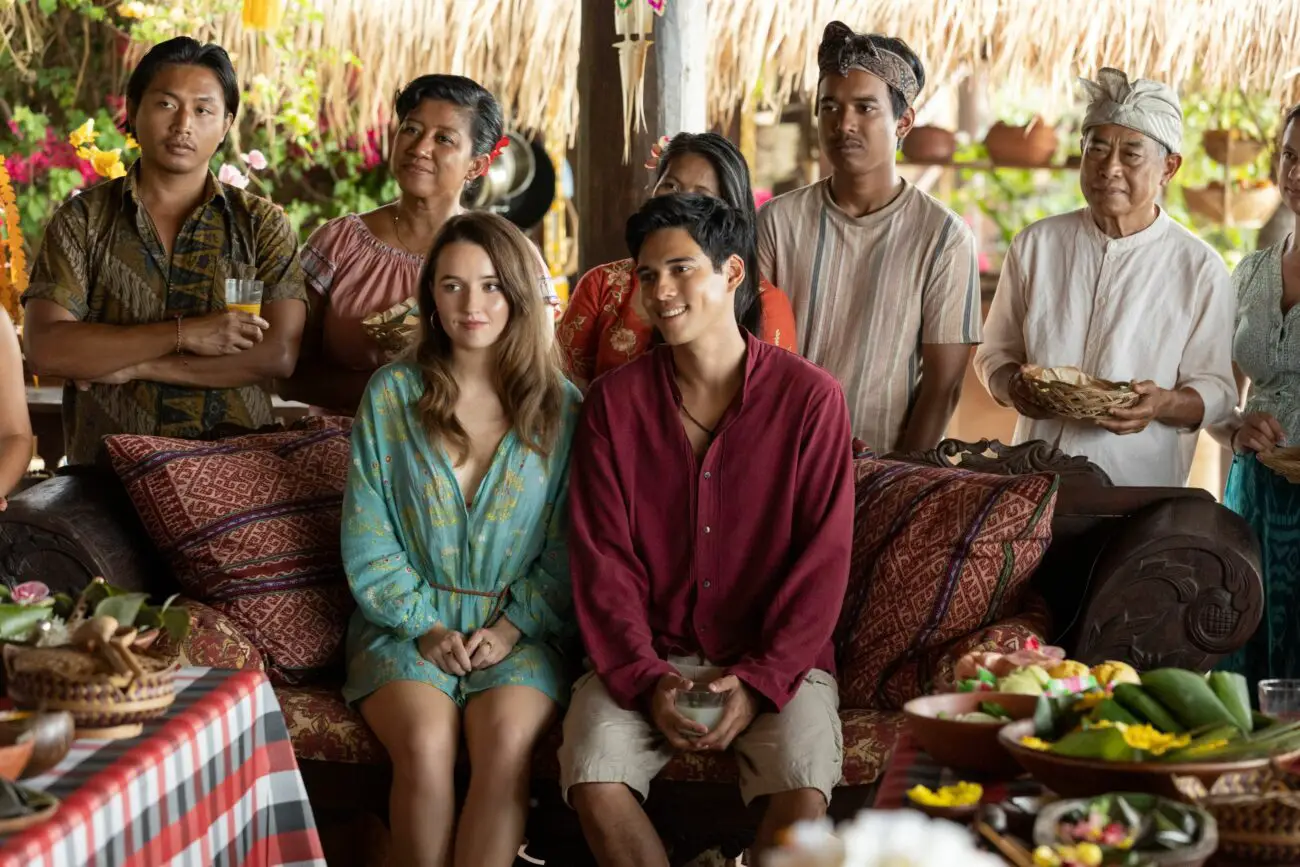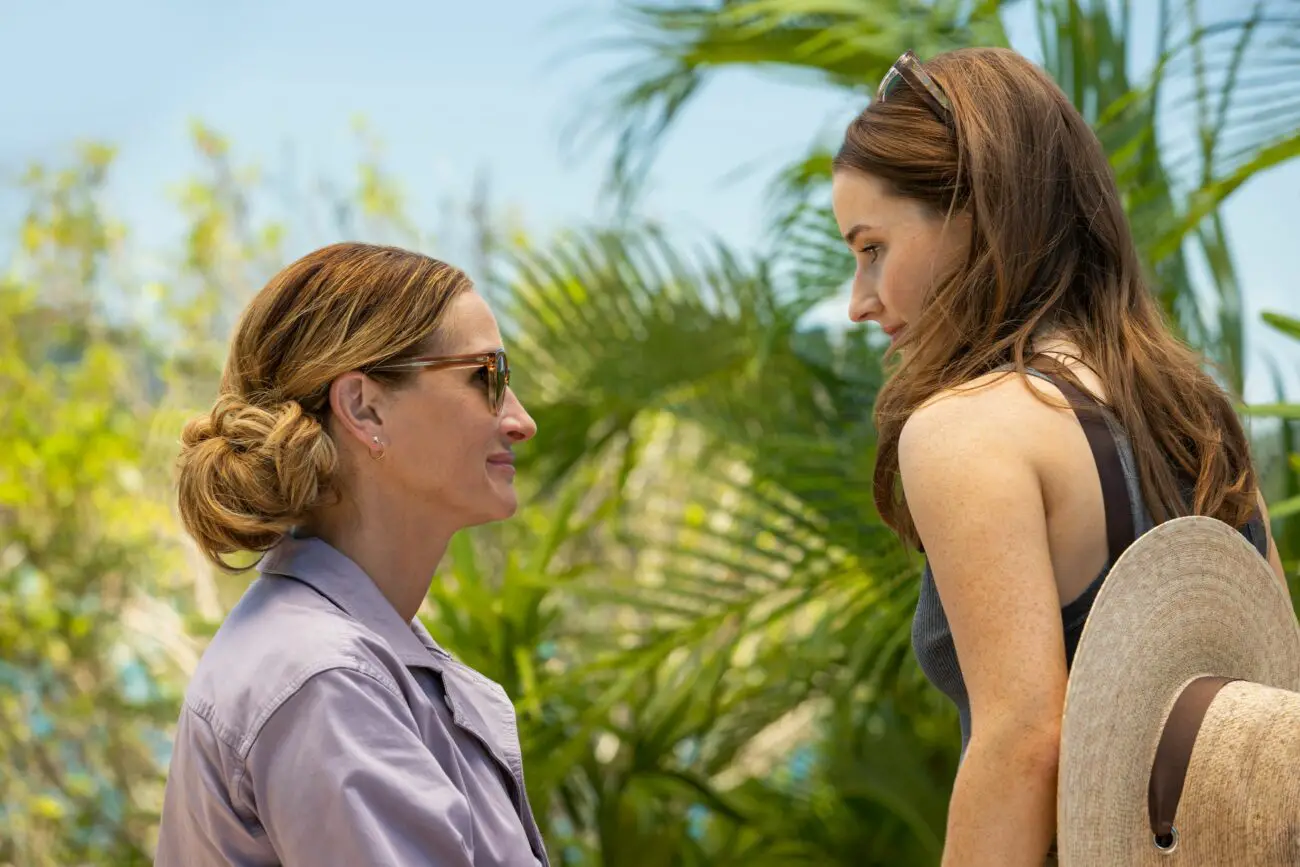In a recent interview with Zack Sharf for Variety, Julia Roberts, one-half of the Oscar-winning top billing of Ticket to Paradise alongside George Clooney, had this to say about the hey-day of romantic comedies:
“I think we didn’t appreciate the bumper crop of romantic comedies that we had then. You don’t see all the effort and puppet strings because it’s fun and sweet and people are laughing and kissing and being mischievous. This is a genre that I love to participate in and watch, and I think they are hard to get right. There is a really simple math to it, but how do you make it special? How do you keep people interested when you can kind of predict what is coming?”
Two notions stand out from those Variety quotes. First, she’s completely right. The multiplex movie scene has long missed, and has not come close to matching, the 1990s peak of the genre from decades ago. In classic “they don’t make ‘em like they used to” fashion, the majority of romantic comedies from the last twenty years have either evolved into dramedies (think something like The Big Sick) that reduced the signature hamminess or devolved into cookie-cutter Netflix streamers or, worse, the ever-churning syrup of Hallmark Channel movies.
Romantic comedy offerings can do better and be better, which highlights the second emphatic idea from Julia’s quotes. She asks the exact two questions of simple movie math that make or break a good romantic comedy. Ticket to Paradise does not need any calculators, extra algorithms, tutors, or cheat sheets to get their math right. That’s because it’s light arithmetic and not trigonometry, and there’s nothing wrong with that.

David and Georgia Cotton (Clooney and Roberts) are two ultra-successful divorcees who avoid each other at all costs. The pettiness between the two of them towards each other, even when the other is not present, is off the charts. We meet the two characters telling co-workers polar opposite versions of how they met, married, and imploded. Hearing her insistent curtness and his pessimistic sarcasm swirls like oil and water and brings out the first chuckles of plenty to come.
Seemingly, David and Georgia’s one shared and sustained success is their law school graduate daughter Lily, played by Kaitlyn Dever (currently starring in Rosaline). Her commencement event reunites the quarreling cockatoos. Afterwards, they see her and her partying bestie Wren (Dever’s Booksmart costar Billie Lourd) off to a summer vacation to Bali before entering the adult phase of career and personal independence. For the two parents, the hardest part of their work is done and they likely won’t have to share a setting again until their girl gets married someday.

As fate would have it, that next joyous occasion arrives sooner than they could have ever imagined. Within the short months away, Lily has accepted a marriage proposal from Gede (Maxime Bouttier of Meet Me After Sunset), a local handsome, earnest, and successful seaweed farmer. Very much feeling the old burn scars of their own marital disaster, David and Georgia fear the worst and travel to Bali together with a hellbent united front to sabotage the nuptials. Naturally, hijinks ensue and the requisite predictability challenge grows.
There’s a great line of self-admission later in Ticket to Paradise that says, “A parent will do anything for their kids except let them be themselves.” You have two trajectory-driven parents here that raised a successful and intelligent daughter, yet fail to be supportive of letting her figure out the unknown potential for happiness or mistakes. It’s a very real parental knock, and this cautionary chestnut of trust is wisely as dramatic as the movie gets. We have Lily and Gede’s mature resolve portrayed confidently by Dever and Bouttier opposing the big stars to thank for that bit of weight.

It does not take long for Ticket to Paradise to become a travelogue for the culture and decadent dalliances possible on the Indonesian island province. With every sunrise, sunset, and establishing shot that floats over a beach with swooping beauty, the film can be a wallet-emptying advertisement all its own that magic and peace (as well as par-for-the-course rom-com privileged finery and entitled conveniences) are automatic in this place. Kudos to first-time location manager Joseph J.U. Taylor and Judy cinematographer Ole Bratt Birkeland for making Bali look like a million bucks. Go ahead and start your Airbnb and TripAdvisor searches.
Director Ol Parker (Mamma Mia! Here We Go Again) and his debuting screenplay partner Daniel Pipski knew to step back and let the veterans work. Roberts and Clooney are two former students of the romantic comedy game who have aged like fine wine to become masters of their craft. A sharp viewer will notice, remember, and be impressed by the measured subtleties coming from the physical sides of their boundless screen presences. George and Julia are experts at emoting charm and wit without words, and that includes Clooney’s dancing dad face which ranks uglier than any Star Wars blaster face this side of Tatooine. Alas, every adjustment of posture, wince of composure, and physical tick coming from George and Julia tell more about character than their provided lines.

It’s a pleasure to watch the reunited Ocean’s series co-stars work together again. Admittedly, the two screen legends are more fun when they are at each other’s throats early on in Ticket to Paradise than later when they are cuddled closer together by rekindled circumstances. You root for the competitive one-upmanship more than the softening comeuppance their characters have coming. For a while, there is a sizzling and infectious comedic burn to their verbal clashes and invasions of personal space that wanes with time. Who knew getting nicer would sap a little of the enjoyment?
On a few levels, it’s reductive to call Ticket to Paradise a “throwback.” The movie couldn’t be more modern with its trappings and attitude. It’s also too soon to label it a “resurrection” or “resurgence” for the whole romantic comedy genre. Time will tell whether loyal audiences return to tally enough profits that turn a studio exec’s head to make more. Instead, take Ticket to Paradise for what it is in the here-and-now as a welcome new addition to the resumes of two cherished audience favorites. Better yet, match the movie’s repeated dare between the former spouses of “Why save the good stuff for later?” Get that date night now and go.



